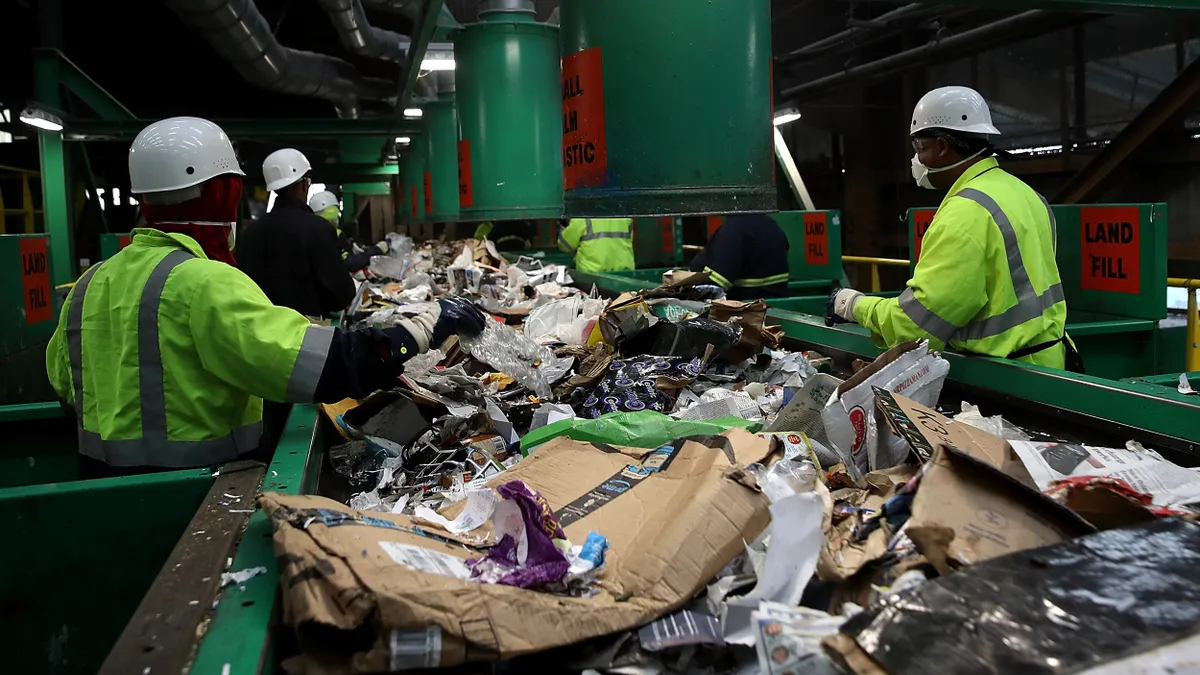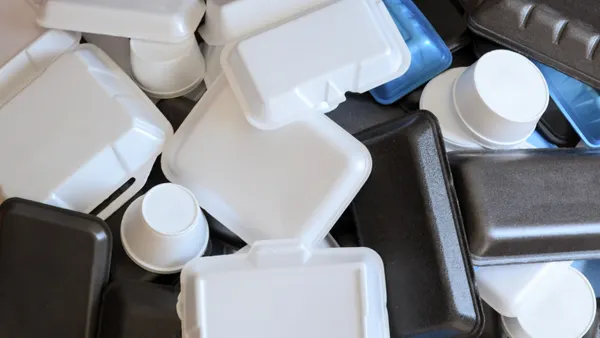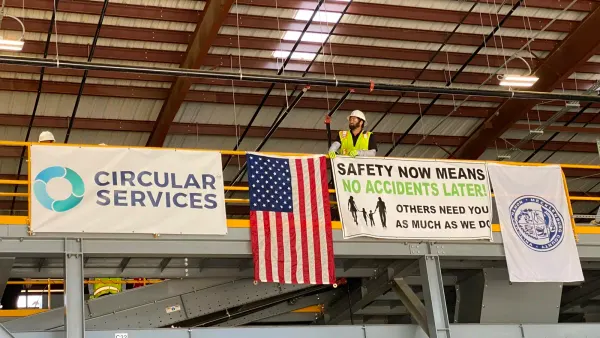Dive Brief:
- NextCycle, a business accelerator program for recycling market development initiatives, is making its pitch as a tool for advancing state circular economy plans and helping businesses expand in Michigan, Colorado and Washington.
- In a Wednesday webinar hosted by the Northeast Recycling Council, public and private-sector recyclers and businesses discussed how NextCycle helped them plug into a network of business connections, funding opportunities and technical consultants to more quickly install better equipment, expand rural access to recycling and speed up business expansion.
- Presenters said the business accelerator model is an important way to build investments and partnerships across the recycling system, which not only helps get projects done sooner but strengthens ties between state environmental agencies, municipalities, recyclers, end markets and equipment manufacturers.
Dive Insight:
As more states pass laws raising diversion goals and establishing extended producer responsibility programs, NextCycle sees itself as a way to help businesses and municipalities keep pace with increased circular economy demands.
Those looking to start or grow recycling or waste diversion projects often face roadblocks such as funding issues, a lack of key partners, uncertain end markets or insufficient support through growth planning, said Elisa Seltzer, a senior consultant for Resource Recycling Systems.
NextCycle is an initiative of RRS, along with each participating state’s environmental agency and numerous industry partners such as the Carton Council, Closed Loop Partners, Dow, the Foodservice Packaging Institute and state recycling coalitions.
Applicants can choose different “tracks” based on their business goals, but the end result is to take a specific project – say a facility expansion or an R&D goal – from spark to reality.
Most of the webinar focused on the program’s impact in Michigan, a state that aims to raise its recycling rate to 30% by 2025 and 45% by 2030. The current rate is about 19.3%.
Matt Flechter, recycling market development specialist for the Michigan Department of Environment, Great Lakes, and Energy said the state needs to invest in recycling markets and circular economy projects in order to get anywhere close to collecting the estimated 2.7 million tons of material needed to reach the 45% recycling rate goal. EGLE leads NextCycle in the state.
“Markets are vitally important to create that demand pull, but also make sure the system is working so that those materials can make their way into end uses that manufacturers need,” he said.
Since NextCycle Michigan was first announced in 2020, it has supported 90 different teams working on foam recycling programs, municipal data collection projects for market feasibility studies, vermicompost startups and more, Seltzer said.
Paulina Leung, chief sustainability officer for Emterra, said connecting with NextCycle helped speed up two major infrastructure goals. The recycler used EGLE grants to purchase a robot to sort foodservice ware and another sorter for its glass stream, which she says will expand its partnerships with transfer stations and smaller MRFs that have less ability to sort cartons, she said.
Emterra also secured funding for a new education center at its Lansing MRF, and used its NextCycle connections to get advice on how best to design its educational content.
Rebecca Hu, co-founder of AI robotics sorter company Glacier, said NextCycle helped the company expand from balmy San Francisco into Michigan, where it will quality test its newest models in Michigan’s harsh winter when installed at two area MRFs. “We’re excited to hit the ground running, and we hope this will be a case study” for further business expansion, she said.
While NextCycle is well-established in Michigan, the program was first established in Colorado, where the state’s Department of Public Health and Environment heads it up along with similar public and private partners to Michigan’s model. So far, 24 teams have launched projects to improve recycling and reuse in the state, including Table to Farm Compost, which needed help building a business plan and finding funding sources to open its first facility serving rural areas of the state, Seltzer said.
Businesses and municipalities are making these investments as Colorado gets ready to implement a new EPR for packaging law, which calls on packaging producers to help finance a statewide recycling program.
NextCycle Washington launched its program this year. It is in the process of designing how it will fit the state’s unique needs and is working specifically to create a program structure with underserved communities at the table, said Kamal Patel, co-founder of Traversal Design, who is offering technical support for the program. That includes creating more accessible communication strategies, ensuring community members make up at least half of decision-making roles and identifying barriers that might make the NextCycle application process difficult.
“We want to encourage more participation, more inclusion, more collaboration. But to do that, we need to have a paradigm shift on how we engage with communities,” said Patel.











